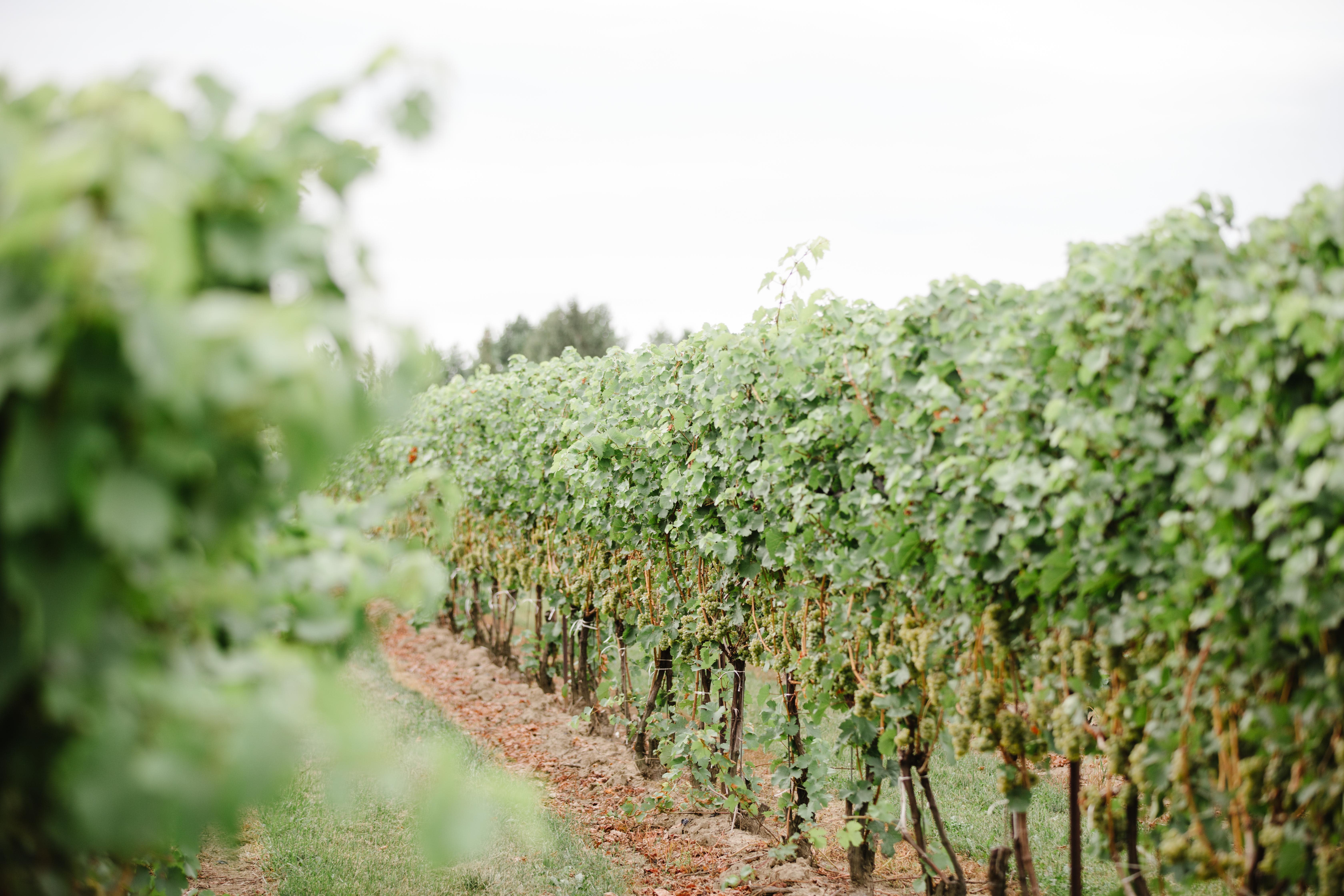When toasting Mother Nature this Earth Day, raise a glass of Ontario VQA wine that's Sustainable Winegrowing Ontario Certified for assurance that it was produced with sustainability at the forefront of each winery and vineyard's business philosophy.
Grape growers and wine producers are closely linked with the environment. Both rely on natural resources and carefully consider their impact on the world around them. Nestled in the heart of Ontario Wine Country, two St. Catharines wineries, Henry of Pelham Estate Winery and 13th Street Winery, are not solely focused on making great, award-winning wines. These wineries are climate action leaders committed to taking care of the land and reducing environmental impacts with sustainable approaches, preserving natural resources, and contributing to a healthy future for our community.
Henry of Pelham Estate Winery and 13th Street Winery are among 24 Sustainable Winegrowing Ontario Certified (SWOC) wineries in the province. SWOC is a voluntary program aiming to cultivate awareness, commitment, and leadership in sustainable winegrowing practices in Ontario. Wineries and vineyards earn certification through annual third-party audits ensuring they adhere to environmentally sustainable practices in their winemaking and grape growing operations.
The program's three pillars of sustainability include:
- Environment – Certified wineries and vineyards are committed to preserving local vineyards for generations to come and are invested in land conservation and restoring natural habitats to ensure a healthy ecosystem.
- Economy – Certified wineries and vineyards play a vital role in preserving local economies. Regional wines are an integral part of a community's economic health and are naturally woven into their fabric.
- Community – Certified wineries and vineyards are good neighbors, promote diversity and social equity in the workplace, cultivate positive relationships with their communities, and are leaders in social responsibility.
Some of Henry of Pelham Estate Winery's sustainable vinicultural practices include:
- Composting leftover organic materials from winemaking, such as grape skins, seeds, and stems, and then returning them to the soil.
- Using other materials such as vineyard netting, bottles, pallets, and barrels that are reusable, recyclable, or biodegradable.
- Adding bio-filters to ponds to improve the quality of ground water leaving the property.
- Constructing winery buildings in quadrants so rooms can be heated or cooled separately, often passively, with outside air.

Some of 13th Street Winery's sustainable vinicultural practices include:
- Repurposing an old barn as a roosting structure for migratory birds that feed on vineyard damaging insects.
- Limiting soil compaction and fuel consumption through intentional vinicultural decisions; applying drought-tolerant landscaping decisions to reduce water consumption.
- Installing a rain collection system capable of storing 30,000L to irrigate on-property landscaping.
- Implementing a single-stream waste and recycling program that is specific to the winery's waste.
Thank you, Henry of Pelham Estate Winery and 13th Street Winery, for your commitment to sustainable winegrowing and care for our natural surroundings and community.
More from the Blog
Why St. Catharines is the Place to Invest, and Why Now is the Time
As Niagara’s largest city, St. Catharines is transforming into a hub of culture, innovation, and growth — and right now, the momentum has never been stronger. With unbeatable connectivity to the GTA and U.S. border, new infrastructure like expanded GO Transit and cross-lake hovercraft service, and powerful financial incentives for development, this is the perfect moment to build and grow here.
Imposter Syndrome: Why Success Still Doesn’t Feel Like Enough
March 12, 2026Many business owners quietly wrestle with self-doubt and question whether they’re truly cut out for this work.
Summer Company 2026: Program Information Session
February 17, 2026Summer Company, a program designed to help students become their own boss!
Financial Forecasting
February 18, 2026What is a cash flow, why do you need it, and how do you create one?
More Blog Posts

